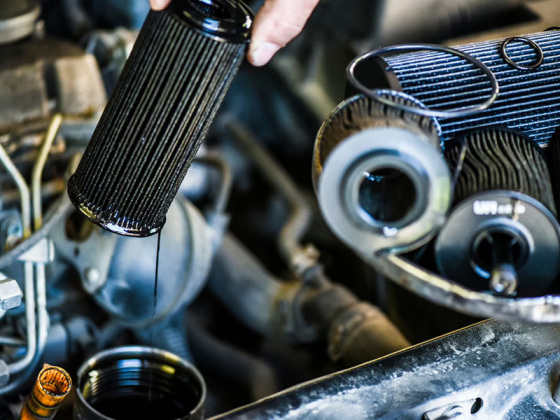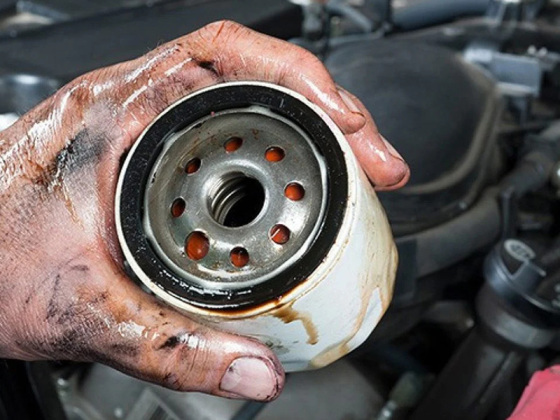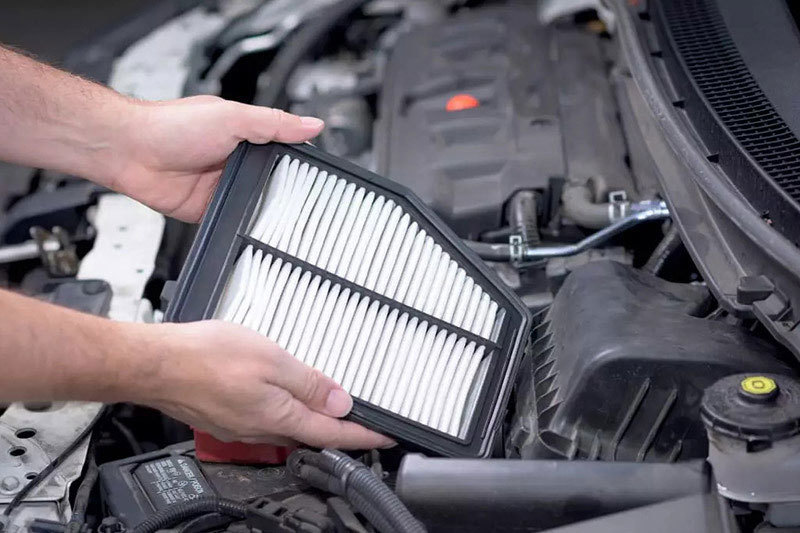Maintain optimum fuel efficiency with well-maintained automotive fuel filters
Release time:
25 Jun,2024
Fuel efficiency plays a vital role in our daily lives, affecting our wallets and the environment. As fuel prices continue to rise and environmental issues become more serious, it is important to ensure that our vehicles operate in the most efficient way. One of the important components that help improve fuel efficiency is the automotive fuel filter.

Fuel efficiency plays a vital role in our daily lives, affecting our wallets and the environment. As fuel prices continue to rise and environmental issues become more serious, it is important to ensure that our vehicles operate in the most efficient way. One of the important components that help improve fuel efficiency is the automotive fuel filter.
What is a fuel filter?
Fuel filter is an important part of automobile fuel system. Its main function is to remove contaminants such as dirt, debris and rust particles from the fuel before it reaches the engine. By purifying the fuel, the filter prevents these impurities from entering the engine and causing potential damage.
How does the fuel filter work?
The fuel filter is usually located between the fuel tank and the engine. It consists of a can equipped with a filter element, which is made of paper, cloth or synthetic material. As the fuel flows through the filter, impurities are trapped in the filter media, allowing only clean fuel to reach the engine.
The role of well-maintained fuel filters in improving fuel efficiency
A well-maintained fuel filter is essential to maintain optimal fuel efficiency. Here are its contributions to this:
1. Improve engine performance: A clean fuel filter ensures that only clean fuel reaches the engine, thereby promoting better combustion. This can improve engine performance and improve fuel efficiency.
2. Reduce engine wear: Contaminants present in fuel can cause wear on engine components. By removing these impurities, the fuel filter helps reduce engine wear, thereby improving fuel efficiency and extending engine life.
3. Prevent fuel line blockage: A clogged or dirty fuel filter will cause the fuel line to be blocked, thereby restricting fuel flow to the engine. This can lead to engine misfires, reduced power and reduced fuel efficiency. Regular maintenance of the filter can prevent such problems from occurring.
4. Save money: By ensuring that your car's fuel system is clean and efficient, a well-maintained fuel filter can help you save fuel costs. Increased fuel efficiency means fewer gas stations and miles per gallon.
Signs of a clogged or dirty fuel filter
Identifying signs of clogged or dirty fuel filters is essential to ensure timely maintenance. Here are some of the metrics your filter might need to be aware:
1. Engine misfire: If you encounter frequent engine misfires or a significant drop in power, it may indicate that the fuel filter is blocked.
2. Starting problem: The vehicle is difficult to start, especially in cold weather, which may be due to a clogged filter, which prevents enough fuel from flowing to the engine.
3. Reduced fuel efficiency: If you notice a sudden drop in fuel efficiency, it may indicate that the fuel filter is not functioning optimally.
4. Engine flameout: A clogged filter can cause the engine to stall because it limits the fuel flow required for smooth operation.
Steps to maintain the car fuel filter
In order to ensure that your car's fuel filter performs its best, regular maintenance is essential. Here are some basic steps to follow:
1. Check the manufacturer's recommendations: Refer to the vehicle manual to determine how often to check and replace the fuel filter. Generally, it is recommended to replace the filter every 20,000 to 30,000 miles or according to the manufacturer's guidelines.
2. Check the filter regularly: Check the fuel filter regularly for signs of dirt, debris or blockage. If any problems are found, it is best to replace the filter immediately.
3. Replace the filter: When you need to replace it, please make sure to use a high-quality filter that meets the vehicle specifications. Follow the manufacturer's instructions for proper installation.
4. Fuel quality: In order to prevent premature clogging of the filter, high-quality fuel must be used. Avoid refueling vehicles with fuel from unreliable or contaminated sources.
5. Professional maintenance: Consider handing over your vehicle to a trusted mechanic for regular maintenance and inspection of the fuel system (including the fuel filter). They can identify any potential problems and solve them before they become significant.
Automotive Fuel Filter Frequently Asked Questions and Answers
Q: How often should I replace the car fuel filter?
Answer: The replacement cycle varies depending on the vehicle and filter type. Consult your vehicle manual or a trusted mechanic for specific advice.
Q: Can I clean the clogged fuel filter instead of replacing it?
Answer: It is generally not recommended to clean the clogged fuel filter. Cleaning may not effectively remove all contaminants, it is best to replace the filter to ensure optimal performance.
Q: What happens if I neglect to maintain my car's fuel filter?
Answer: Ignoring the maintenance of the fuel filter may lead to reduced fuel efficiency, engine misfire, and potential damage to engine components.
Q: Can a clogged fuel filter cause the engine to overheat?
Answer: Although a clogged fuel filter may not directly cause the engine to overheat, it may cause engine performance problems and cause overheating. It is important to resolve any filter-related issues in a timely manner.
Q: Are all fuel filters the same?
Answer: No, the quality of the fuel filter and its compatibility with different vehicles vary. It is important to choose a filter that meets your vehicle's specifications and quality standards.
Conclusion: Maintaining optimal fuel efficiency is every car owner's top priority. A well-maintained automotive fuel filter plays a vital role in achieving this goal. By checking and replacing filters regularly as needed, you can ensure that your engine receives clean fuel, thereby improving performance, improving fuel efficiency, and saving costs in the long run. Actively maintain the fuel system of your car and enjoy the benefits of a well-run vehicle.
Key words:
- All
- Product Management
- News
- Introduction
- Enterprise outlets
- FAQ
- Enterprise Video
- Enterprise Atlas
More information









